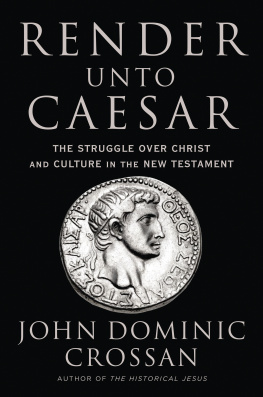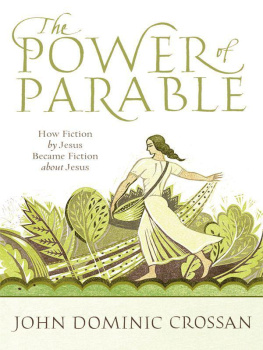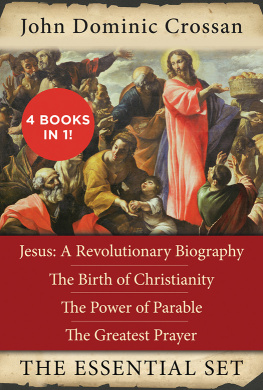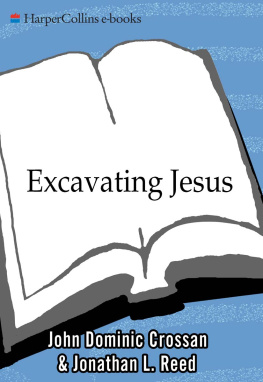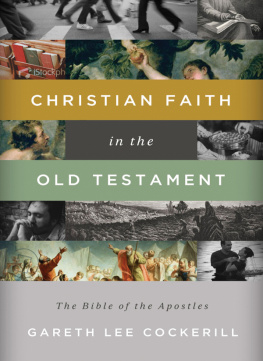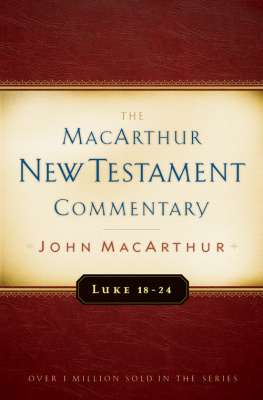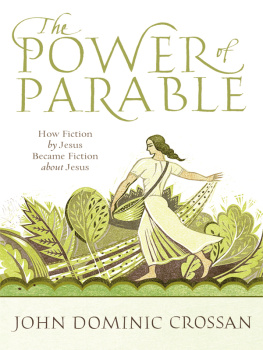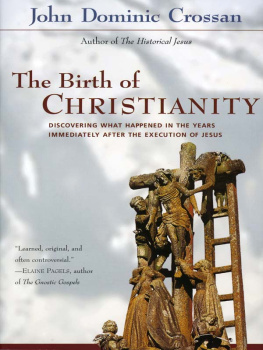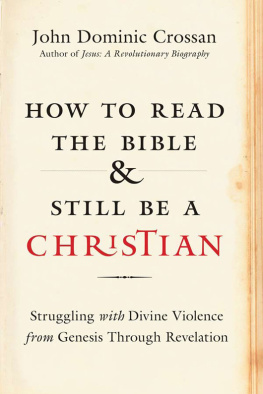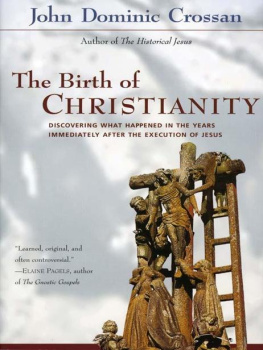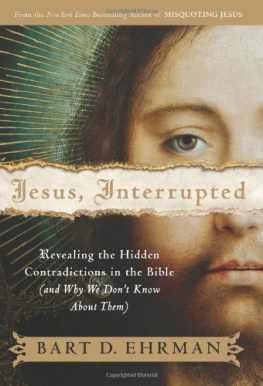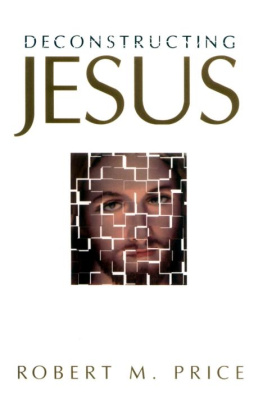Contents
Guide
For
our friends
Linda and David Houseal
Contents
Between the great wars of conquest and the rise of the Caesars [80s30s BCE]... [is] an era full of historical echoes that will sound eerily familiar to the modern reader... rising economic inequality, dislocation of traditional ways of life, increasing political polarization, the breakdown of unspoken rules of political conduct, the privatization of the military, rampant corruption, endemic social and ethnic prejudice, battles over access to citizenship and voting rights, ongoing military quagmires, the introduction of violence as a political tool, and a set of elites so obsessed with their own privileges that they refused to reform the system in time to save it.
Mike Duncan, The Storm Before the Storm
W HAT IS OFTEN MISSED WHEN STUDYING THE LIFE AND ministry of Jesus is his movements location within the larger drama of the Roman Empire at the timesomething people during Jesuss time could never forget. From the 80s to the 30s BCE, Rome, having become an empire, lost its republic. Throughout those successive decades, through political venom and armed violence, Rome self-slaughtered its way relentlessly toward dictatorial autocracy. It achieved it under Augustus, who, as inscribed on monuments, was officially designated ConquerorIMP (imperator in Latin, autokrator in Greek).
Around 40 BCE, the Roman poet Virgil, mistaking lull for peace, proclaimed the return to Rome of earths Golden Age as the great line of the centuries begins anew with a messianic vision of unlabored fertility and feral pacifism (Eclogue 4.5). Not so for another contemporary Roman poet-theologian, as Horace (658 BCE) flatly contradicted Virgils vision. Yes, he said, the latest round in the Roman Republics lurch toward dictatorship was overwith Julius Caesar and Pompey Magnus dead by assassination. But the next round was already well underway between their sons Octavian Caesar and Sextus Pompey. And, after that, what? Another round in a permanent on-again, off-again civil war?
In rebuttal to Virgils rhapsodic hymn, Horace launched an indictment, as savage as it was accurate, against the murderous polarization of Roman republican power. He asked, Does some blind frenzy drive us on, or some stronger power, or guilt (culpa)? and wondered whether a bitter fate pursues the Romans since their fratricidal origins in Romuluss killing of Remus, a curse upon posterity (Epode 7.13-20). Against such inaugural damnation, what eventual salvation could there be?
Since nobody can conquer all-powerful Rome, Horace wondered, as already a second generation is being ground to pieces by civil war, if this selfsame city we ourselves shall ruin, we, an impious generation, of stock accurst. His bitterly sarcastic solution was to abandon Rome to the wild beasts and sail westward to some never-never utopia (Epode 16.9-22). The Golden Age was not here in Rome, but far from Rome!
That was rhetorical hyperbole, to be sure, but the challenge was clear as Romes senatorial Republic stumbled toward dictatorial autocracy. No external power could overcome the Roman Republic, said Horace, but Rome could still destroy itself internally. Also, he asked, was such internal destruction already symbolized in or even caused by Romes foundational murder, the fratricide of Remus by Romulus?
The challenge of maintaining a democratic republic is not limited to past centuries. You may recall John Adamss reply to John Taylor on December 17, 1814: Democracy never lasts long. It soon wastes, exhausts and murders itself. There never was a democracy yet that did not commit suicide. You may also recall that earlier, in a letter of presidential farewell to his fellow citizens, published on September 19, 1796, George Washington warned that a republics death is often an assisted suicide: The disorders and miseries... seek security and repose in the absolute power of an individual... [who] turns this disposition to... his own elevation, on the ruins of public liberty.
Horace wondered if the Roman Republic was cursed by the inaugural fratricide of Remus by Rome/ulus. The American Republic too has had an inaugural fratricide, decades after those two warning letters, in an absolutely hot civil war that continued and still continues as a relatively cold civil war. Republics fallpossiblyby fratricidal curses, but they fallcertainlyby fratricidal politics.
Furthermore, within a far fuller matrix, we humans are an evolutionary anomaly, a social species with individual wills. (Our genetic woe is not original sin but original state.) As such, we survive on a tightrope suspended over the chasmic extremes of anarchic individualism and autocratic communalism. When we are wise, therefore, we always walk slowly, carefully, and with relentless concentration.
* * *
On Wednesday to Friday, May 35, 2006, the Japan Bible Society held an International Bible Forum with the theme, From the Original Text to Modern Translations: How to Convey the Bible to Modern Society? My wife, Sarah, and I spent those days in Tokyo as I gave two lectures during that symposium. Afterward, we took the Shinkansen bullet train from Tokyo for two days in Kyoto and then, on Monday, May 8, took another one from there to Hiroshima.
Before leaving home, I had finished God and Empire: Jesus Against Rome, Then and Now and took a first draft of its prologue with me to Japan. I deliberately wanted to work on it to and from Hiroshima, to let that tragedy interact with it, and, yes, to name that city as the place of that prologue.
I mentioned in it that, from the 1990s onward, writers had assertedas either triumph or tragedythat America was now Nova Roma, the New Roman Empire, Rome on the Potomac. I noted that such claims started before our Civil War and that, since our fratricidal slaughter paralleled Romes, Americas Roman destiny was confirmed. At the end of that prologue, my final question was: Is Bible-fed Christian violence supporting or even instigating our imperial violence as the New Roman Empire?
It is now fifteen years later as I write another prologue to another finished book. But now the Rome/America parallel has turned all too soon from triumph to tragedy. We no longer live in the certainty of imperial success abroad, but in the uncertainty of imperial decline at home. America is stillas the above epigraph/epitaph suggestslike Rome, but less like that republic on the ascent to internationally violent glory than on the descent to nationally violent ignominy. Any Rome/America parallel must now focus on that mutual moment when foreign violence rebounds asincreasingdomestic violence, when republicanism slouches toward dictatorship, and when our poisoned chalice returns to our own lips.
In this book, I move to deeper questions than those parallelswhether of ascendant imperialism or descendant republicanismbetween ancient Rome and modern America. I turn from any parallel between the things of Rome and the things of America to Jesuss famous contrast between the things of Caesar and the things of God (Matt. 22:21; Mark 12:17; Luke 20:25). But what still and ever holds from that to this book is whether escalatory violence is a human inevitability and nonviolent resistance against it is but a human fantasy.
Furthermore, the Greek transcription of Jesuss challenge is ta tou Theou, or the [things] of God, and ta Kaisaros, or the [things] of Caesar. In English, things is a perfectly good insertion, but so would be, for example, affairs or matters or demands. Compare, for example, the Greek of Mark 8:33, which speaks of the [things] of God and the [things] of humans.
In this book, as you know already from its subtitle, things is taken to mean culture in its fullest sense as ones religiopolitical and socioeconomic world. Indeed, within the Bibles covenantal theology and Romes imperial theology, the cultural things of God or Caesar could just as accurately be transcribed as the rule things of God or Caesar. The [things] of is a deliberately open phrase that begs specification and applicationso think of it as culture, but understand it as rule.

